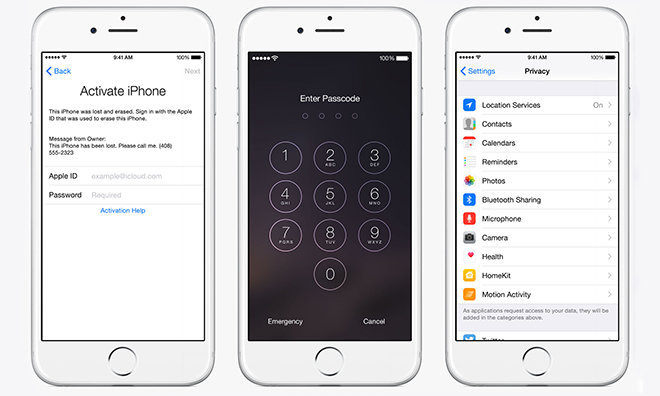Apple again warns White House against policies fostering weak encryption
In a letter delivered to President Barack Obama on Monday, two trade groups comprised of some of the largest tech companies in the U.S. asked the White House to reject government policies designed to undermine encryption systems built to keep consumer data private.
Both the Information Technology Industry Council and the Software and Information Industry Association were signatories of the letter, reports Reuters. The groups represent a number of companies including Apple, Google, Facebook, Microsoft and IBM, among others.
"We are opposed to any policy actions or measures that would undermine encryption as an available and effective tool," the letter reads.
Today's correspondence echoes a note sent to Obama in May, in which Apple and a cadre of tech companies requested the White House reject proposals that would weaken encryption protocols built into consumer electronic operating systems.
Law enforcement officials, looking for access to data that could potentially help in criminal investigations, have repeatedly called on private sector firms to install backdoors into their existing security infrastructure. They argue technology companies like Apple are blocking access to information deemed vital to criminal investigations. Further, Apple is advertising the fact that iOS users are "above the law," officials said.
The issue has become increasingly contentious as Apple, Google and other mobile tech companies deploy high-security encryption protocols that are incredibly difficult to crack. For example, iOS 8 comes with a lockout mechanism so effective that Apple itself is technically incapable of decrypting user data, even with certified warrants for information.
For its part, industry representatives argue encryption is not merely a perk, but a necessity for many consumers. Some attribute the modern data privacy movement to revelations concerning the existence of government surveillance programs, as leaked by former NSA contractor Edward Snowden. The general public has since become hyper-sensitive to prying eyes, especially those attached to government bodies.
"Consumer trust in digital products and services is an essential component enabling continued economic growth of the online marketplace," according to Monday's letter.
 Mikey Campbell
Mikey Campbell











 Wesley Hilliard
Wesley Hilliard
 Andrew Orr
Andrew Orr



 Amber Neely
Amber Neely

 William Gallagher
William Gallagher







